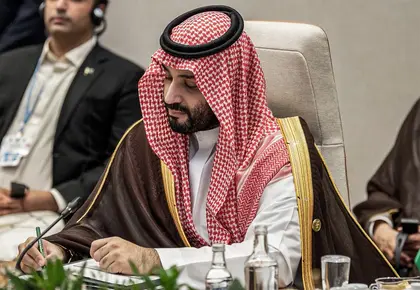Saudi Arabia’s Prince Mohammed bin Salman Al Saud (MBS) has made himself a major player on the world stage. In 2018, His Royal Henchmen assassinated prominent journalist Jamal Khashoggi, a venal act that led President Joe Biden to appropriately label His Kingdom as a pariah nation. But the House of Saud, essentially a welfare state that supports 7,000 princes with a population and GDP the size of Canada’s, has come back.
Its ambitious 37-year-old monarch juggles an impressive, non-aligned foreign policy as the leader of OPEC, the Arab Federation, and an ally of America, Israel, Russia, China, and Iran. He has condemned Russia’s invasion, but not imposed sanctions, and gave Ukraine $400 million in aid (what he paid for his super yacht called Serene). Then on May 19, MBS invited President Volodymyr Zelensky to address Arab leaders and a Pandora’s Box was opened. Zelensky described Moscow’s years of mistreatment toward Muslim Tatars in Crimea and toward millions more Muslims who live across Russia. He said they, like Ukrainians, deserve to be free from Russia’s imperialism.
JOIN US ON TELEGRAM
Follow our coverage of the war on the @Kyivpost_official.
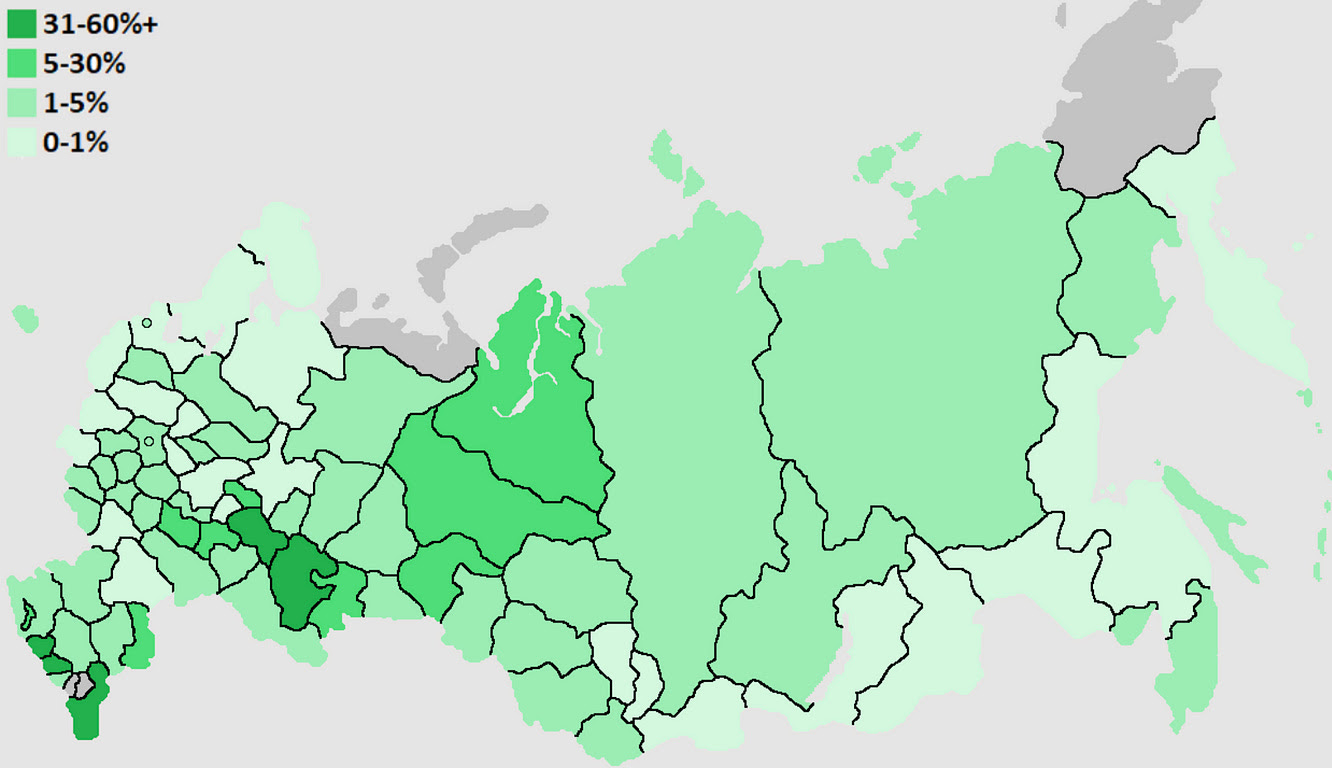 The distribution of tens of millions of Muslims inside the Russia. Dark green is where they hold a majority and includes oil-rich Tatarstan and Bashkortostan, Dagestan, Chechnya, Ingushetia, Kabardino-Balkaria, and Karachay-Cherkessia.
The distribution of tens of millions of Muslims inside the Russia. Dark green is where they hold a majority and includes oil-rich Tatarstan and Bashkortostan, Dagestan, Chechnya, Ingushetia, Kabardino-Balkaria, and Karachay-Cherkessia.
The distribution of tens of millions of Muslims inside the Russia. Dark green is where they hold a majority and includes oil-rich Tatarstan and Bashkortostan, Dagestan, Chechnya, Ingushetia, Kabardino-Balkaria, and Karachay-Cherkessia.

Moldova Declares Energy Emergency as Ukraine Plans to Halt Russian Gas Transit
One of Ukraine’s key strategies has been to stoke dissension among Russia’s Muslims and other minorities. The Tatars, or Turkic, and Central Asian people were conquered centuries ago, but not assimilated. They remain second-class citizens, and are also over-represented as Russia’s cannon fodder. During his speech, Zelensky spoke mostly Crimea.
“Most of those who suffer repression in occupied Crimea are Muslims,” he said. Currently, there are 300,000 Tatars out of a population of two million there and since Russia’s illegal annexation in 2014, they have been persecuted, incarcerated, tortured, and press-ganged into military service. Zelensky also spoke about Russian oppression against Muslims in Libya, Syria, Yemen, Afghanistan, and parts of Africa and, by inference, inside Russia. “I greet everyone who agrees to join us in the path to justice,” he urged the leaders.
MBS didn’t endorse the speech, but his invitation to Zelensky was tacit approval of its content. “It is not clear if Zelenskyy’s speech will do anything to shift any of the Arab states’ stances towards the conflict in Ukraine. Some experts argue that a change in tack is somewhat doubtful given geopolitical realities of a more multipolar world in which Riyadh and other Arab capitals increasingly value their expanding partnerships with Moscow,” reported Al Jazeera.
(And it’s notable that MBS’s other featured guest that day was the Butcher of Damascus, Bashir al Assad, who has been militarily propped by Russia and welcomed back into the Arab Federation.)
Western media missed Zelensky’s anti-imperialist and Muslim angle, but The Hindustan carried a headline that politely asked “Is Zelensky inciting Muslims Against Russian President?” It outlined the oppression of Crimea’s Tatars, but the piece added that Chechnya’s Muslim leader and his mercenary army fight alongside Russia despite two violent attempts by its people to secede from Russia. However, missing was the fact that several thousand Chechens also fight for Ukraine, and most of Russia’s million draft dodgers were Muslim and ended up in Central Asia and Georgia.
After the speech, MBS met privately with Zelensky and later publicly offered to mediate an end to the conflict. Quiet diplomacy is his style, but it would be fair to conclude that he and other Arab leaders will now keep an eye on Russia’s Muslim regions, some of whom may decide to launch independence movements if Moscow loses the war.
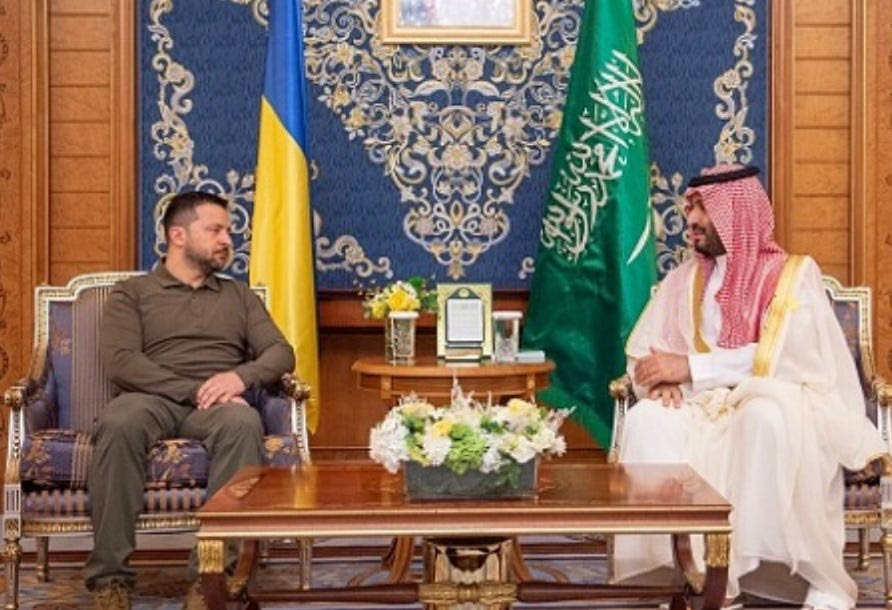 May 19, 2023 in Jeddah.
May 19, 2023 in Jeddah.
Clearly, MBS is full of surprises and, whatever happens, is a leader to watch. He has staggering wealth, absolute power, and ambition. His international moves are big and bold, unlike the small gains he has handed out to Saudi’s females or foreign workers. Diplomatically, he plays with the big boys in the big leagues, signing a slew of trade deals and alliances with major nations as well as contracts with the world’s greatest football and golf stars. And his reproach to the anti-oil Green Movement is his splashy mega-project called Neom which will be a luxurious, futuristic, and sustainable “giga-city” in the desert. It is now under construction.
The Prince is here to stay. He sits atop the world’s second largest reserves of oil, a tap that won’t run out for 220 or so more years. Saudi Arabia has benefitted greatly from the war because Putin weaponized energy and oil and gas prices soared. The Kingdom has also ducked damaging oil price caps imposed by the G7 on Russian oil by simply refusing to cut prices. The result is that Saudi revenues jumped by 46 percent this year to $326 billion, greater than the GDP of Israel, South Africa, or Ireland. Little wonder, the Crown Prince can wheel and deal and even kick sand in the West’s face or Russia’s, or anyone’s for that matter.
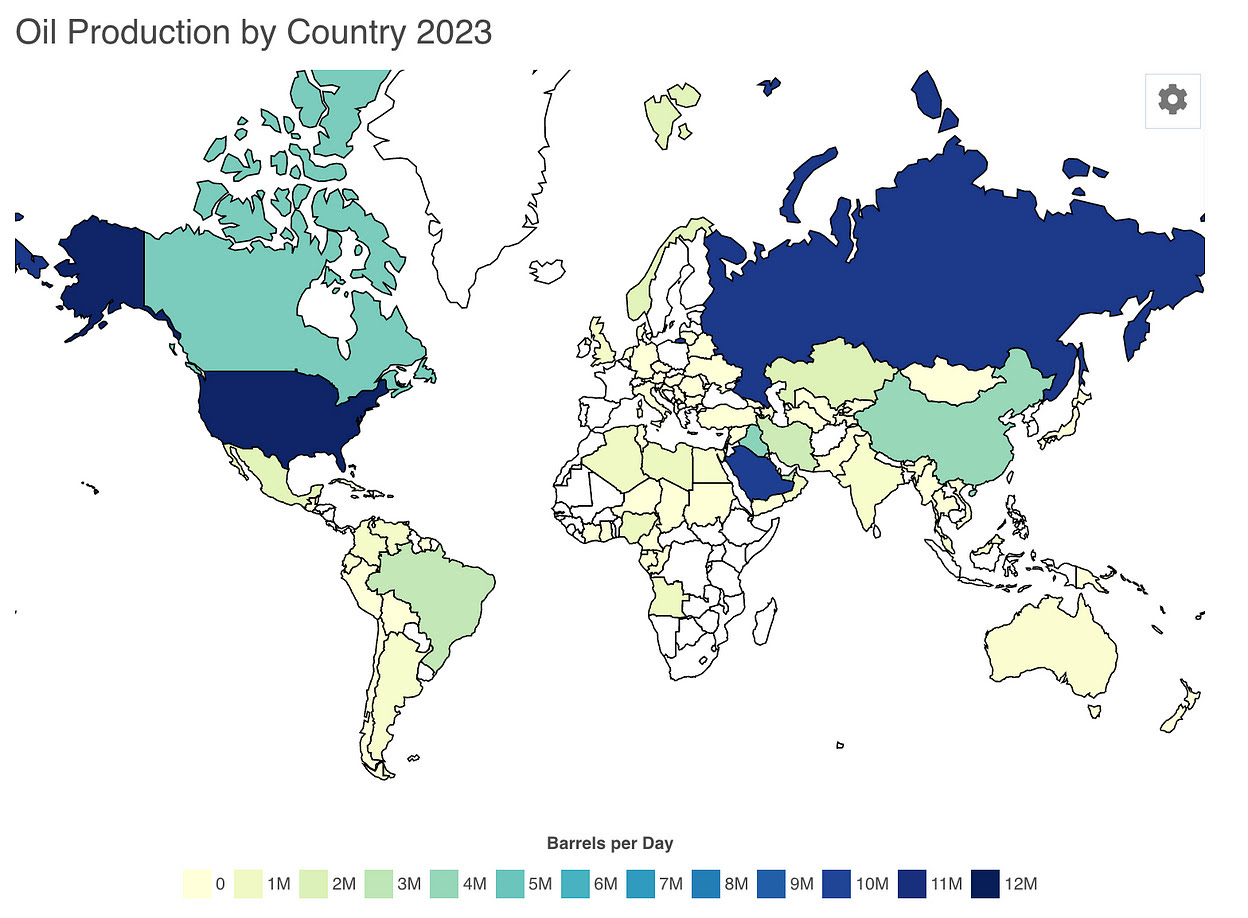
MBS navigates adroitly. He has retained the U.S. as the region’s major security guarantor despite the dust-up with Biden. The two met and fist-bumped. He enjoys a good relationship with Israel and with Beijing which buys half of its crude from the Middle East and supplies goods, arms, and infrastructure projects there. But the shocker this year was when Saudi Arabia and China restored diplomatic relations with Iran. “It was match-up brokered by China, the first time Beijing has waded into the Middle East muddle,” commented the Asia Times. “It’s all a tangle: The Saudis are closely aligned, militarily, with the United States and with Israel as a result of U.S. brokered Abraham Accords. But reaching out to Iran is the show stopper, given the intense distrust for that country among Arab nations in the region because of its export of terrorism. And Iran and Russia are closely aligned.”
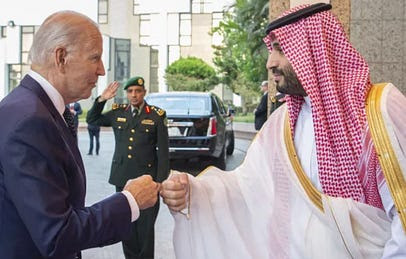
Biden and MBS in 2022 in Jeddah.
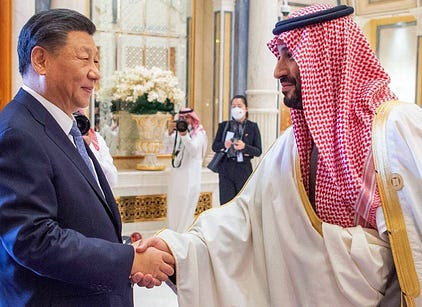
Xi and MBS in 2023.
MBS now has a seat at the table wherever the Middle East, energy, Europe, America, China, Ukraine, or Russia are discussed. Perhaps he and China can stop Putin’s murder and mayhem. Zelensky’s speech was well-received in Jeddah and was pitch perfect. He he left behind his “10-point peace formula” translated in Arabic and, most significantly, gave the world’s richest Muslims food for thought about the thorny “Muslim question” inside Russia. “The time of empires has stopped,” said the Ukrainian President. “The struggle will never end and Ukraine proves it.”
The views expressed in this opinion article are the author’s and not necessarily those of Kyiv Post.
Reprinted from dianefrancis@substack.com - Diane Francis on America and the World See the original here.
You can also highlight the text and press Ctrl + Enter


